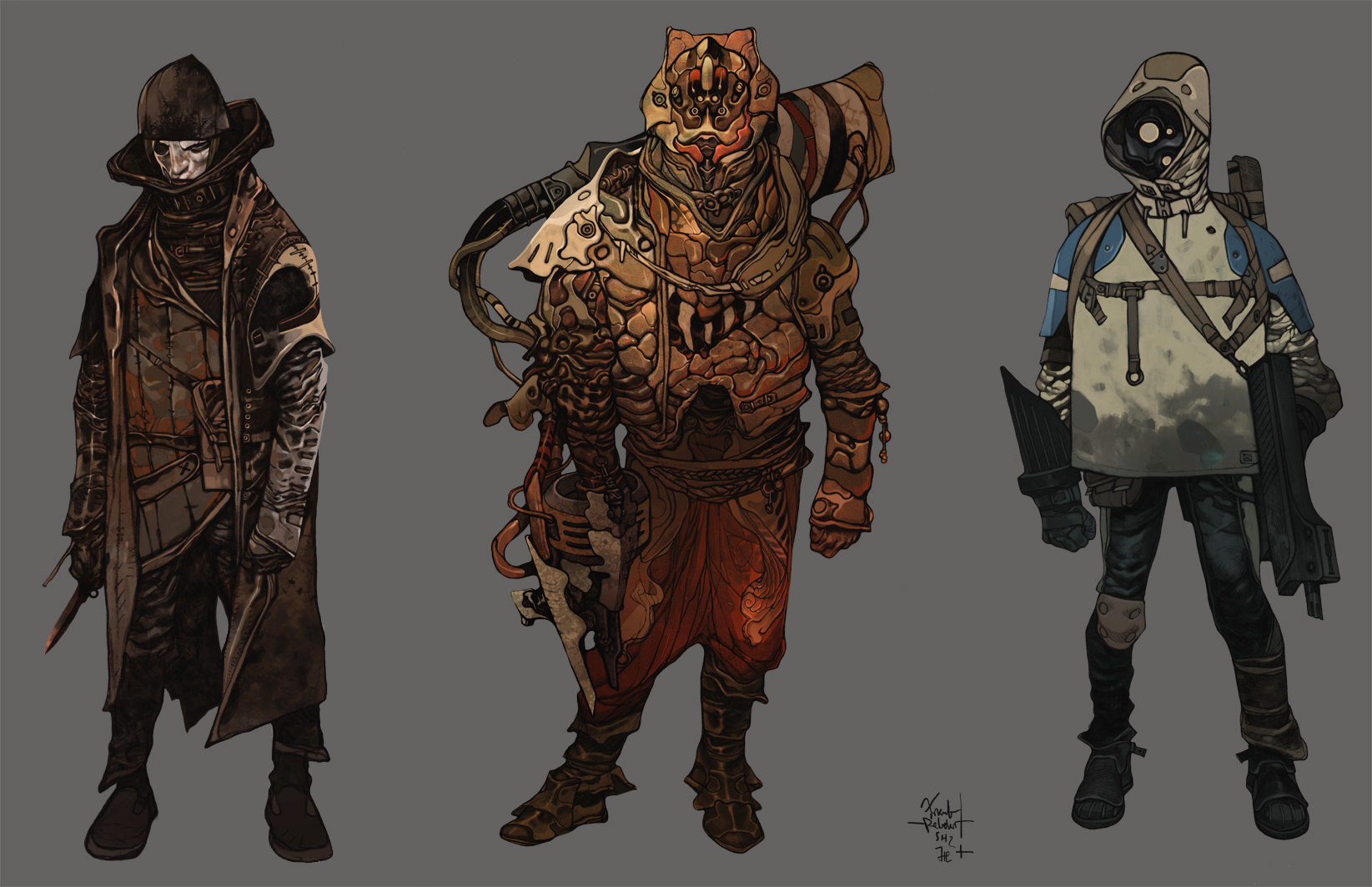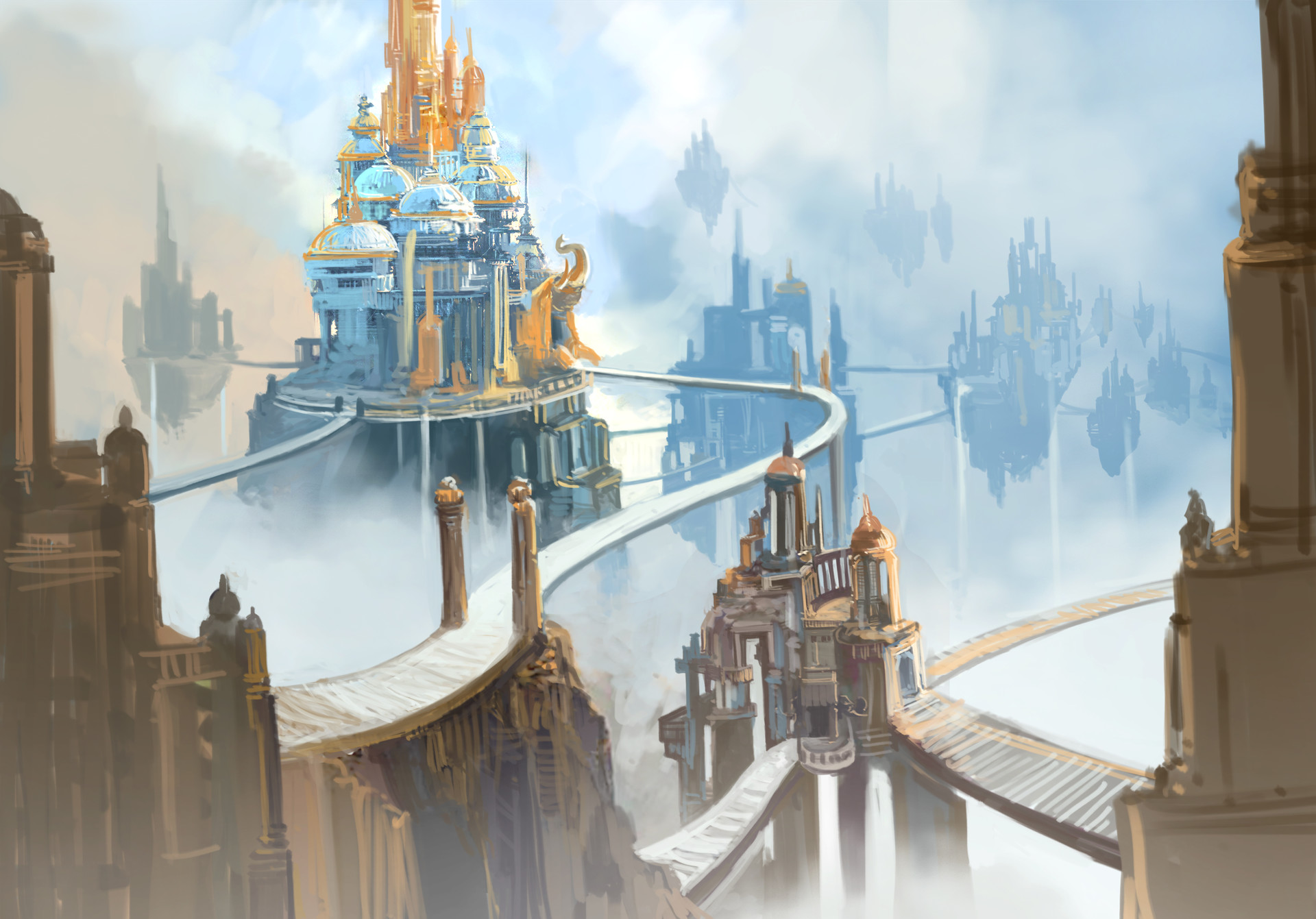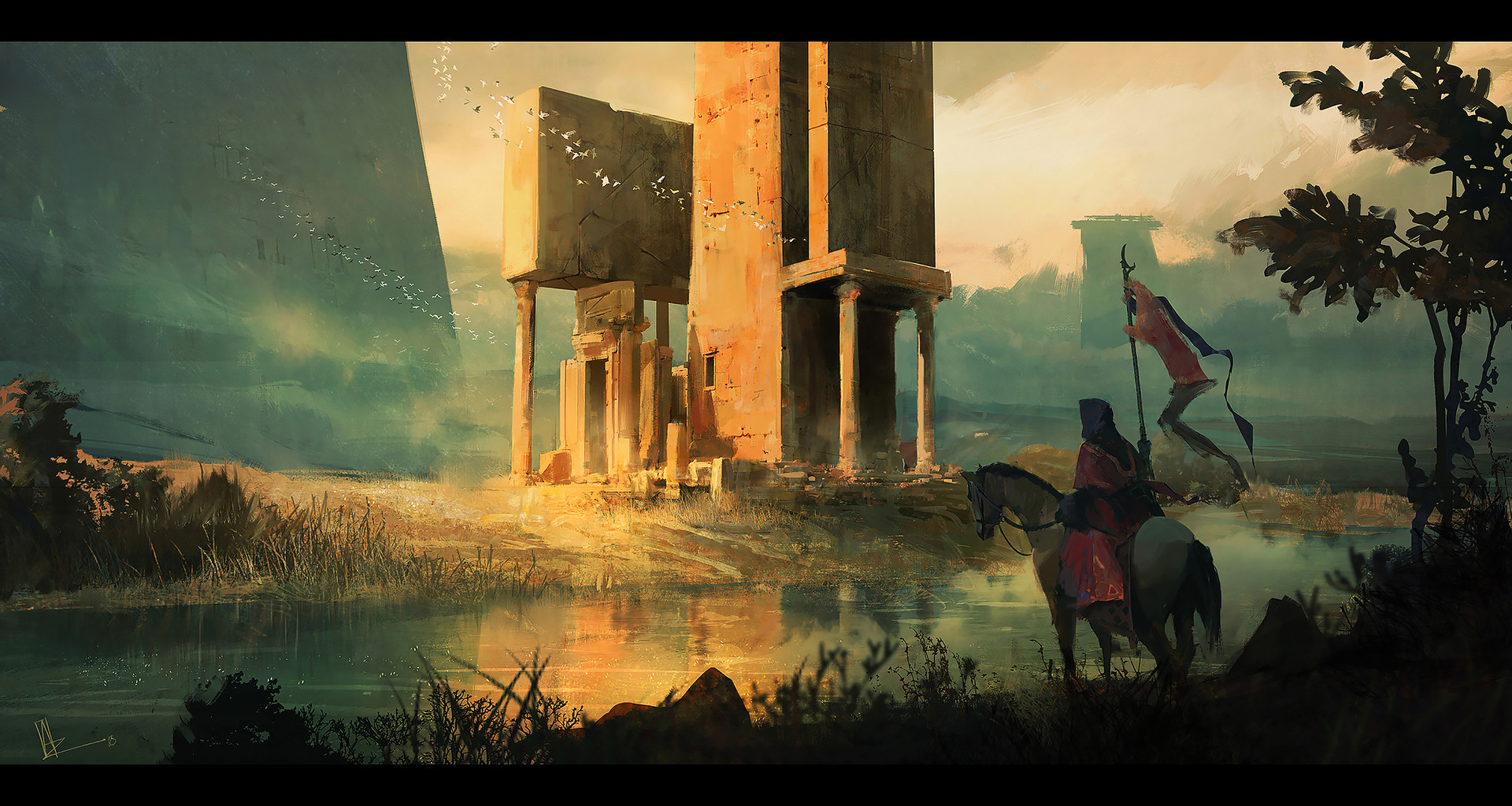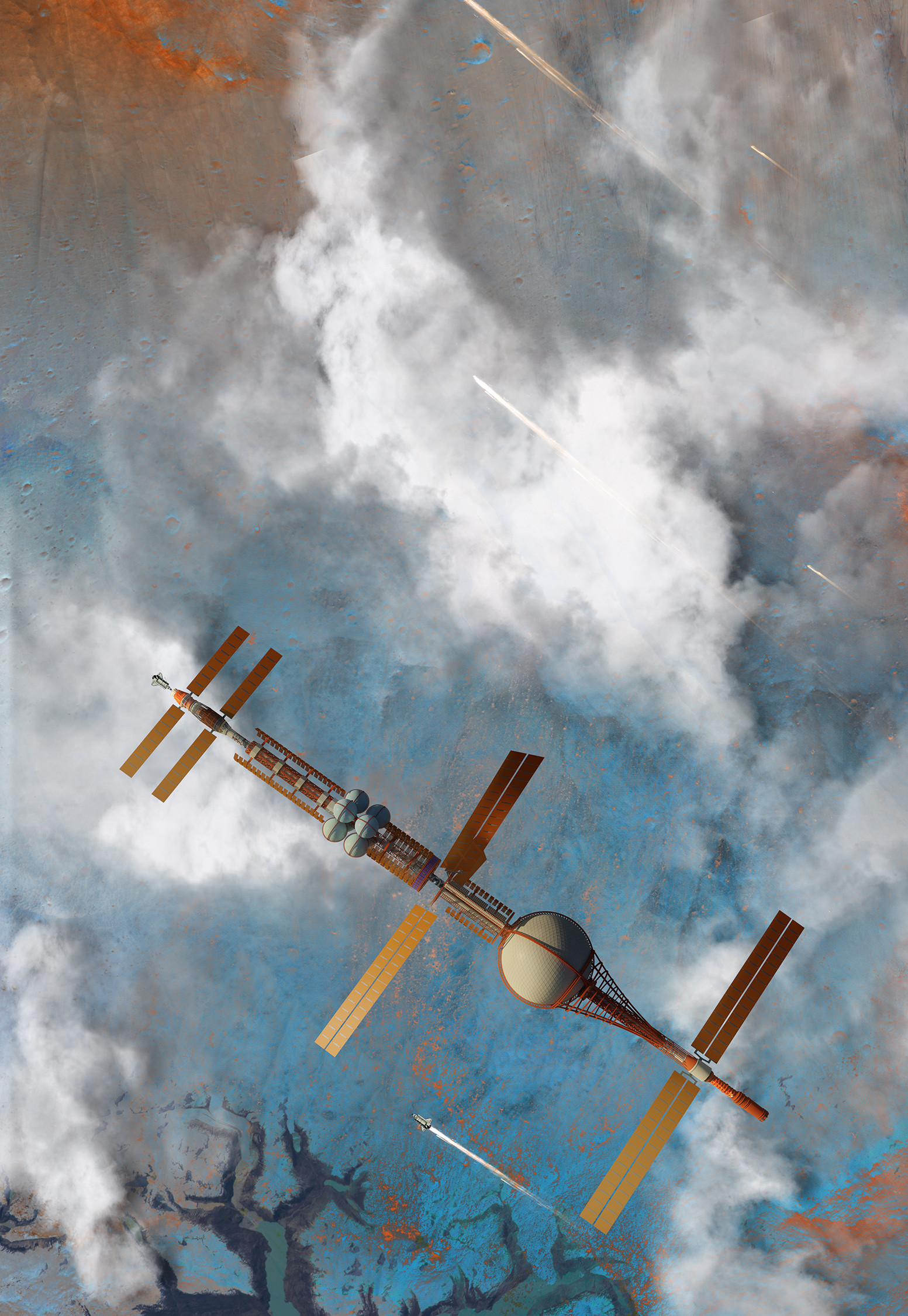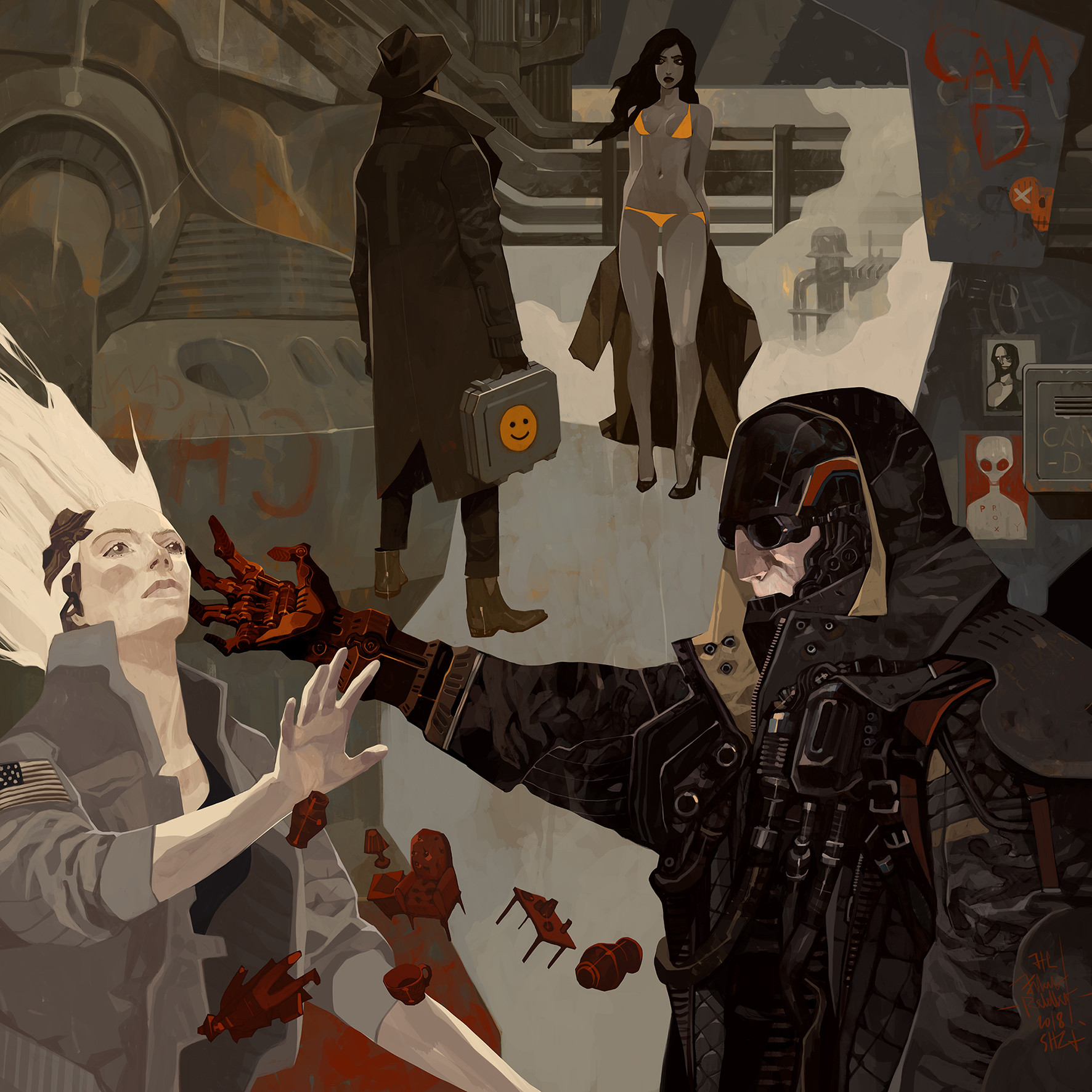 |
| Credit, Jakub Rebelka |
Skills
One of the main breaks with the core rules lies in the skills available to characters. The current list of skills (including those from Eldritch Cock) stands at:- Architecture
- Bushcraft
- Climb
- Languages
- Leadership
- Luck
- Medicine
- Seamanship
- Search
- Sleight of Hand
- Sneak Attack
- Stealth
- Tinker
While these serve reasonably well for a game of Early Modern dungeon crawling, they do miss out on several sci-fi aspects like computers/programs and advanced technology. I've also never liked the Search skill in LotFP - I want my players to tell me what they are doing and how they are searching for something, not just roll and hope for the best.
With this in mind, I have changed the skill list for Adrift on the Night's Black Sea to be as follows:
- Data - used for manipulating computer programs and other software.
- Climb - as stock, but it also affects strenuous actions (i.e. skill rolls or combat) in low/zero-g environments.
- Etiquette - this isn't a persuade skill, but reflects a character's knowledge of how to phrase conversations and hold themselves in delicate matters among different social strata.
- Language & Culture - I'm running off the concept that language = culture, and learning one almost always gives insight into the other.
- Leadership - as stock in Eldritch Cock, used to 'encourage' hirelings.
- Luck - as stock in Eldritch Cock, provides a pool of re-rolls.
- Medicine - as stock in Eldritch Cock, improves HP recovery.
- Pilot - used when attempting risky manoeuvres in a vehicle or on a mount.
- Science - used when analysing an unknown substance, organism or phenomena.
- Stealth - as stock. Still not a superpower.
- Tech - used for manipulating mechanisms and machines.
The list isn't perfect, but it accomplishes what I want it to: it provides the PCs with meaningful ways to interact with the setting, whether that's repairing an overheated railgun on a voidship with the tech skill or analysing the properties of a xeno narcotic with the science skill.
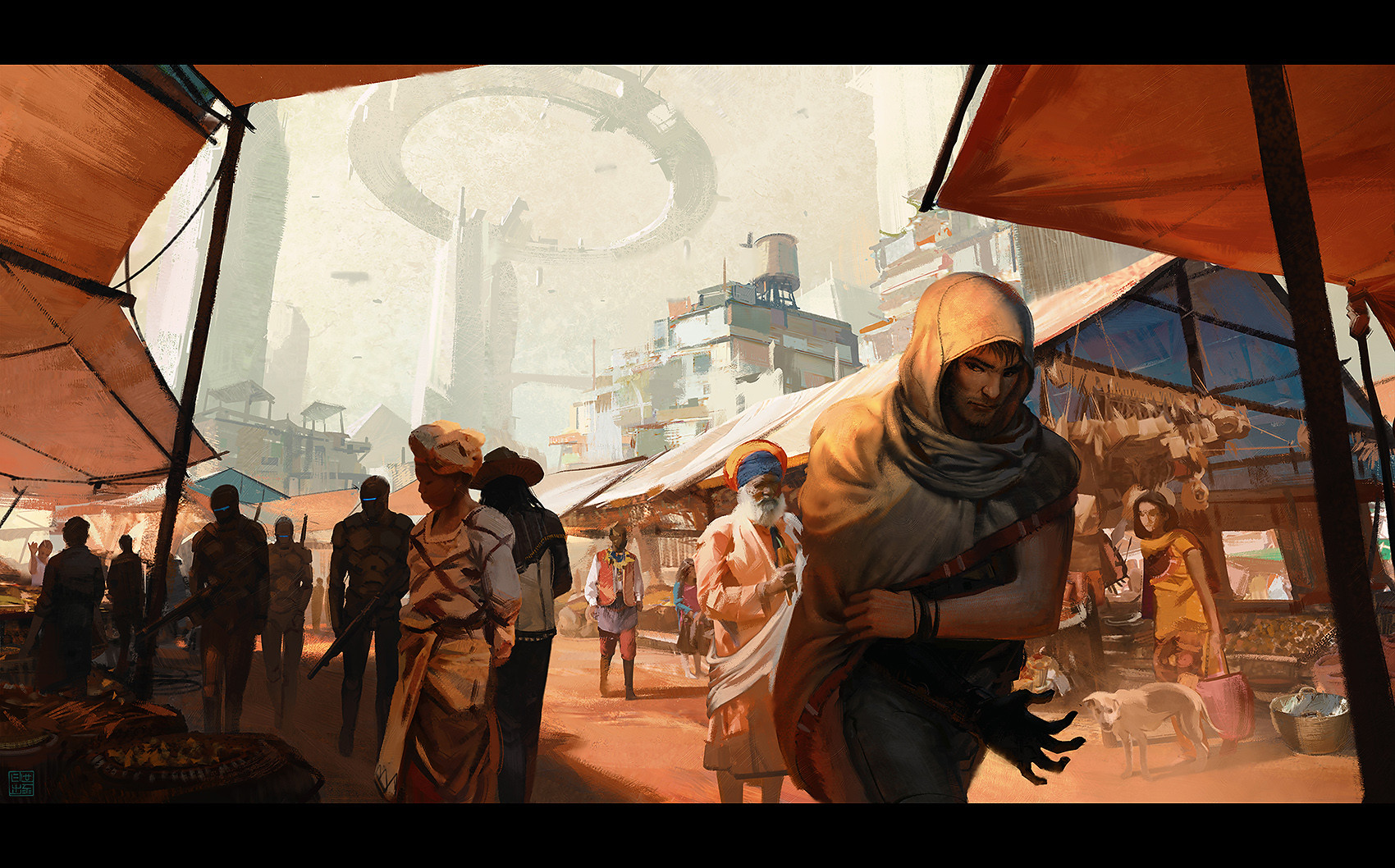 |
| Credit, Lorenz Hideyoshi Ruwwe |
Backgrounds
I'm always debating the best way to handle PC knowledge in an RPG. I can't stand the stock D&D/Pathfinder approach of knowledge skills, where facts are assigned an arbitrary difficulty and the player needs to either stack skill points to reliably learn information about the world. At the same time I feel like it's important the PCs should not know certain facts. I don't mean hidden or ancient knowledge, just relatively everyday things like who the High Priest is or why you shouldn't piss off the guys with red armbands, the sort of thing that a local or someone who has come from a certain part of society would know a decent amount about but an outsider wouldn't.
With the above in mind I've settled on using a similar system to Robert J. Schwalb's Shadow of the Demon Lord, in which PCs roll professions that relate to their general areas of knowledge. On topics familiar to their professions the GM is advised to have them either pass automatically, or roll a 10+ on a d20 with added boons (d6s that add positive modifiers).
Characters in Adrift on the Night's Dark Sea will roll a background during character creation, which will be a rough guide as to the nature of their general knowledge. A technician and priest will have quite different knowledge sets. If a player asks something that a character with their background would be likely to know, I'll just tell them. If it's something more esoteric but still within the background's wheelhouse then a d6 roll with advantage, aiming for 5-6, should suffice. Something at the reaches of that background's experience will need a 6 with no advantage.
The current background lists for PCs are as follows. Armatures do not roll backgrounds, but I'm going to encourage my players to come up with a guess at an armature's purpose based on what they roll for additional features:
Warrior (1d8):
The current background lists for PCs are as follows. Armatures do not roll backgrounds, but I'm going to encourage my players to come up with a guess at an armature's purpose based on what they roll for additional features:
Warrior (1d8):
- Soldier: You served in a polity’s armed forces, or were part of a mercenary band.
- Criminal: You broke heads for scrip.
- Raider: You plundered and looted for survival or pleasure.
- Medic: You stitched and bandaged flesh on the battlefield..
- Outsider: You lived on the edges of society, preferring life in the wilds.
- Religious: You served as a strongarm for one of the Solemnis’ fevered cults.
- Bodyguard: You risked life and limb to protect your employer.
- Engineer: You maintained weapons and war machines for your comrades.
Expert (1d8):
- Historian: You worked to recreate the knowledge of the Old World.
- Scholar: You sifted through the records of the past.
- Technician: You tinkered and repaired machines and equipment.
- Medic: You stitched and bandaged flesh.
- Emissary: You were sent to parley between polities and factions.
- Hacker: You lost yourself in the streams of data coursing through the Solemnis.
- Botanist: You tended to an agri-dome plantation or investigated new crop strains.
- Pilot: You sat at the helm of voidcraft or atmospheric fliers.
Psion (1d8):
- Outsider: You advised, watched, and/or terrorised from the edges of society.
- Religious: You served, or led, one of the Solemnis’ fevered cults.
- Soldier: You served in a polity’s armed forces, or were part of a mercenary band.
- Scholar: You sifted through the records of the past.
- Spy: Your powers allowed you to go where others could not.
- Criminal: You used your powers for personal gain.
- Oracle: You gazed into the currents of the warp-aether to deliver guidance and prophecy.
- Emissary: You were sent to parley between polities and factions.
 |
| Credit, Ben Nicholas |
Combat & Equipment
Eldritch Cock makes a few changes to stock LotFP combat rules. Characters have 4 bonus - Melee, Ranged, Firearms and Guard. I've merged Ranged and Firearms into the same category. My logic is that a separate firearms category is unnecessary as sci-fi armour will provide decent enough protection, as opposed to gunpowder weapons ignoring 5 points of AC in stock LotFP (which my internal logic sees as being due to Early Modern armour still catching up to new armour-piercing weaponry, despite the advantages of gunpowder weapons in training and ease of use). Also this means that someone with a nanofibre bow and monoblade-tipped arrows can compete on a similar footing to a gunslinger and still feel pretty cool about themselves.
In terms of weapon sizes I've gotten rid of the 'minor' category. All minor weapons are now small weapons.
PCs dual-wielding melee weapons (up to medium-size) may choose between a +1 Attack bonus or +1 AC bonus at the start of the round. PCs dual-wielding pistols may make 2 attacks, but each attack is made with disadvantage. A PC dual-wielding a melee weapon and pistol may make 2 attacks in melee, one normal melee attack at no penalty and one ranged attack at disadvantage.
Eldritch Cock rules also mean that all weapons to 1d8 damage, with small and minor weapons taking a penalty to against armour and great weapons getting a bonus. I'm keeping the 1d8 damage but removing the static penalties and bonuses in favour of weapon tags. Each weapon will have one or more tags that give it a specific attribute or feature. Weapons can be customised through attachments to add new abilities.
I'll be following up on equipment in a subsequent post.

